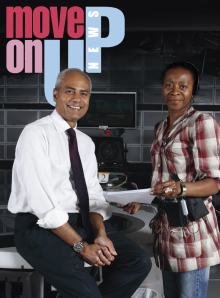Ofcom referred to equality body
BECTU is referring Ofcom to the Commission for Equalities and Human Rights for a perceived failure to meet its diversity obligations.

Move On Up in News was held at the TUC on 21 September.
BECTU has revealed communications regulator Ofcom has refused to publish ethnic monitoring statistics it holds on 138 licences across commercial television, radio, cable and satellite.
The union is challenging the decision under the Freedom of Information Act, it revealed at Move On Up in News, the first major diversity event for the broadcast and online news sector.
National Executive Committee member Suresh Chawla told the 300-strong audience of broadcast news professionals on Friday that one of Ofcom's predecessors, the Independent Television Commission, had published this information annually as a matter of course.
Chawla said that despite greater diversity obligations under the Communications Act Ofcom was now seeking to keep this information secret. "How can Ofcom, whose responsibilities include investigating over 44,500 complaints of racism on Big Brother, fail to take its own responsibilities so seriously?" he said.
Ethnic monitoring was also raised by distinguished BBC newscaster George Alagiah at Move On Up in News, which was attended by 85 top executives from all major news broadcasters along with over 200 black and minority ethnic journalists and crews.
Alagiah called on Ofcom to release a full breakdown of diversity figures for the sector.
In an impassioned speech Alagiah said he and others were "often ambivalent about being asked which ethnic category we belonged to, and the only thing that justified such an intrusive question was because the answer could be used as a tool to lever change in the workplace".
He went on: "The idea that the information should be withheld from those to whom it matters most - black and minority ethnic workers - is utterly out of order. I call on all companies to do the right thing: tell us what their workforce really looks like."
In previously published research, 96% of journalists are white, as are 97% of camerapeople for example; and the number of black and minority ethnic (BME) workers dwindles further higher up the ladder.
Sir Trevor McDonald OBE, also speaking at Move On Up in News, told the audience: "Having a diverse workplace makes commercial sense. Broadcasters can't engender trust if they don't represent the communities they serve. With increasing globalisation, broadcasting organisations have to have a representative workforce."
Alagiah also refuted the accusation made recently by Cracker writer Jimmy McGovern that the BBC is racist, claiming instead that the problem "is not so much race as culture"
He believes that most broadcasting companies have the right goals and targets in place to address the under-representation of BME workers in newsrooms and editorial departments, but are ill-equipped to deliver them.
Both he and Sir Trevor McDonald called for more BME workers to be in decision-making roles and encouraging those who in hiring positions to move out of their comfort zone when looking to take on staff.
Move On Up in News was a special industry event set up in partnership between BECTU, the BBC, ITV News/ITN and the NUJ to bring together top industry executives with BME professionals in the hope that in the long run the new contacts and information gained would lead to new opportunities.
BECTU's Move On Up project director Janice Turner commented: "BECTU is delighted that so many broadcasters took part in Move On Up in News and that unions and the employers are joining forces to tackle diversity in the workplace.
"During the course of the day over 500 one-to-one meetings were held between more than 200 BME participants and 85 top executives from BBC News, ITV News/ITN, Channel 4 News, Sky News, Reuters and Al Jazeera, plus the Guardian, the Times and The Telegraph, among others.
"It is the first event of its kind between trade unions and news organisations, and highlights the growing partnership between the unions and broadcasters to take practical action to increase diversity."
